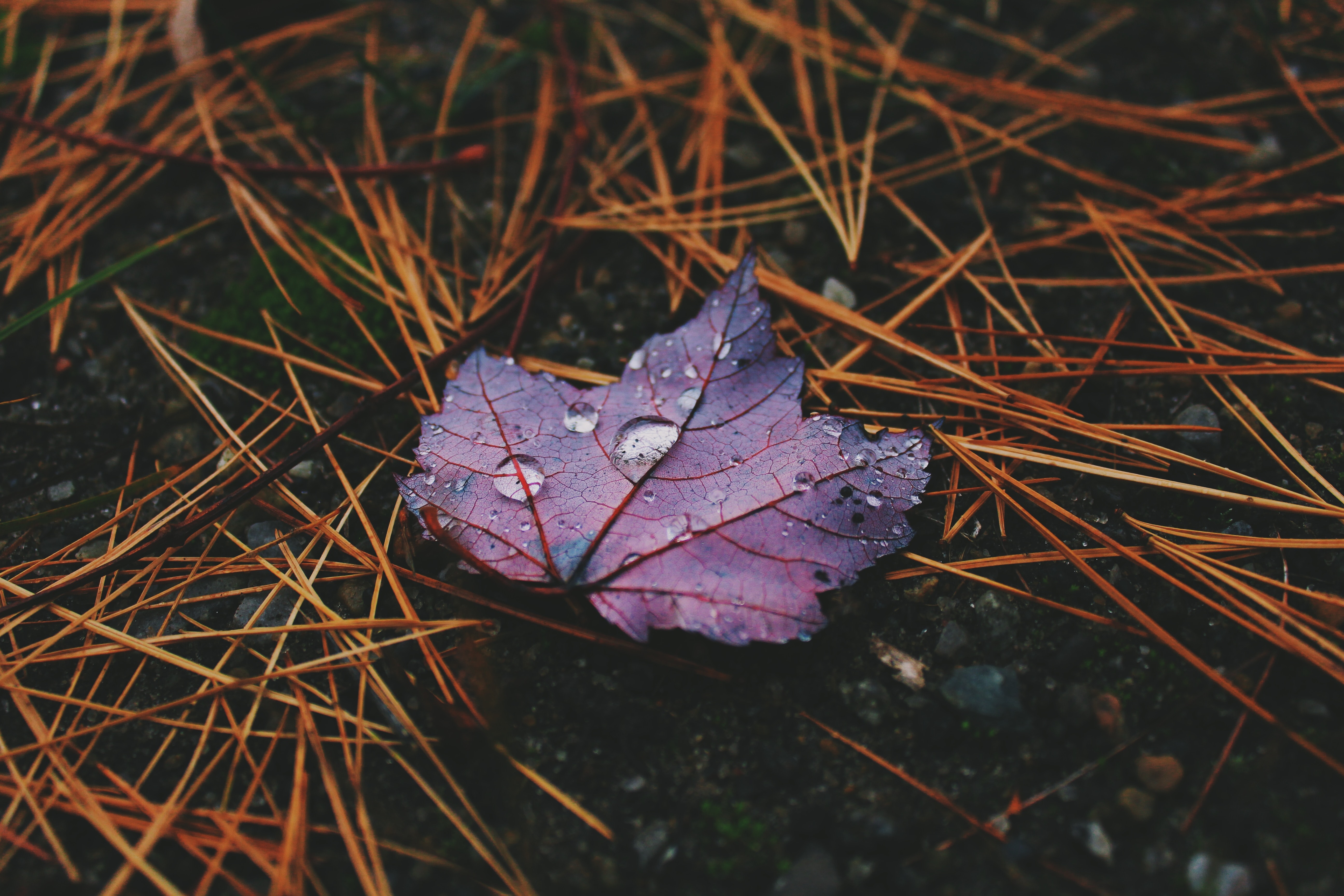The ghosts of complex childhood trauma can often manifest as self sabotage, imposter syndrome, and limiting beliefs. Here’s my journey from zero to becoming my own hero.
By Kathy Gray, Mindset Coach at The Most Successful You

One of my earliest childhood memories are pine needles. Sitting in my teal blue pushchair, my head hanging over the edge, looking at the pine needles scattered along the pavement. Going to the woods with my gran and sister to forage nettles for champ. Some of the other memories are not so great.
My parents separated when I was a toddler, my mother left my father and the family home with both my elder sister and I, taking us to our Gran’s home, many miles away across counties. My Gran raised both my sister and I on her own over the next few years, as my mother had left us to pursue a nursing career in London. Of all the memories I have as a child, I remember at this age, not knowing what a ‘mummy’ was. Some years later, my mother returned, only to announce that she would be taking me to live with her and her new boyfriend, but not my sister. I remember my Gran crying and telling my mother that she could not take one without the other. But my mother would have none of it. So off we went, just mother and I, on the train to my new home. The train journey entailed my mother continuously repeating to me that my sister was not my sister, she was my cousin. I knew something was not right, but I was barely past 4 years old. Afterwards I had reoccurring dreams of being taken to the beach, with my blue buggy and placed on a pirate ship by my Gran; she had told me the pirates would be looking after me now and that I must go with them. I did as I was told, watching my Gran and my blue pushchair fade into the distance as the ship sailed out to sea. In the dream, I searched high and low for my sister, but I could not find her anywhere. This dream stayed with me for many, many years.

Life was not the greatest as I spent most of my childhood being subjected to all dimensions of abuse and made to feel like I was worth less than the proverbial on a shoe. I had gained my second scar, on my chin, within the first few weeks of being in my new home. I had failed to tidy my toys away quickly enough which angered my step father, who hurled me through the air; as I collided with the wooden easy chair, I felt the sharp edge of the armrest tear into my chin. I was then hauled to my feet by the scruff of my neck, thrown into the wall and subjected to a beating with a broom. It was at this point my mother noticed the blood pouring from my face and decided that I should at least have a plaster on it. I remember standing on a stool over the bathroom sink, staring into the mirror, my tiny hands holding as firm as I could, a flannel pressed to my chin; while my mother went to the shop to buy some plasters. I went to day nursery the next day and whilst on the swings the blood struck through the elasticated plaster wedged on my chin. Questions were asked of me while the nursery staff changed the plaster, but I refused to answer. That was the last time I attended the nursery.
The thick white scar on my chin remains to this day. It is still sensitive to touch, and on occasion has often felt like it gapes open again as if it were yesterday. I have learned to love my scar, for it signifies my drive to overcome anything I face in life, no matter the odds.
To survive, I learned to fawn, a fourth element of the fight or flight response. This action, with a heavy dose of dissociation and resilience became a way of life until I left at the age of 17. I spent most of my secondary school life at the mercy of bullies. For years I stumbled along, not really having any direction in life and not being able to finish anything I started. I would try to up level my life in all areas, only to sabotage any success that glittered and beckoned to me on the horizon. I found myself in relationships that were clearly psychologically abusive, subconsciously sought out to fit with my comfort zone and what I thought I deserved. My aspirations always fell to default mode after being conditioned to think I was not intellectually capable or worth achieving much more.
I had always been fascinated by psychology and why people behave the way they do. This led me to a journey of self-discovery many years later after I had given up, yet again, on my then chosen career path of nursing. After two years of nurse training, I had given up. The inner saboteurs cheered and celebrated. Shortly after, my daughter and I had become homeless and I wanted to prevent this from ever happening again. I knew that for that to happen, I had to harness the power within myself to create meaningful change. I used my university study credits from my nurse training to complete a Bachelor of Science degree in Social Sciences. I gained a respectable 2:1, for me, this was the first time I had ever pushed through the limiting self-belief model that had been my comfort zone for decades. I had finally beaten my inner saboteurs and finished something.
Next came my PGCE, a Post Graduate teaching qualification which propelled me to a teaching career in further and higher education teaching psychology. I began studying a master’s in psychology alongside my teaching, planning, marking, and juggling the household. Mostly, with about five to six hours sleep each night and a long commute each day.
My fondest memories are from when I taught on the Access to Higher Education programmes, students on these programmes are aspiring to take their degree, progress to a career and change their lives; previous to this they would not have been able to without the relevant A Level grades. I loved the students and was in my element, motivating and inspiring them to achieve while teaching a subject I was passionate about. Sadly, it is extremely difficult to gain more than zero-hour contracts and for two years running, I lost my teaching hours in time for Christmas. The master’s degree in psychology, for which I had completed five of the eight modules, went out the window as I could no longer afford to pay for it. I consoled myself with the fact that I had completed sufficient modules to gain a Post Graduate Certificate in Psychology. It was a case of head down, get through Christmas and figure something out fast.
It was not long before I decided that, if I could only ever achieve zero-hour contracts, I would have a zero-hour contract with myself. I set up my own coaching business. A decision that was to change my direction in life; one that required a dramatic shift in Mindset and the development of a multitude of small but empowering habits. It also forced me to acknowledge that I had a toolbox of powerful and valuable psychological skills; ones that I had not realised existed. I reflect upon everything I have been through from a place of gratitude and knowing that such mental toughness is a gift to be shared.
Covid-19 arrived shortly after my launch, but this time, the saboteurs stayed silent. I have come to recognise that over the years, I have survived through sheer grit, resilience, and strength. I have always internally, referred to the challenges I have faced as hurdles; visualising them as such and working out ways to either get over or around them.
There is always a solution to any problem in life, it is a case of finding and mapping out the path to that solution. In her book Mindset: Changing the way you think to fulfil your potential, Dr Carol Dweck talks about the difference between the two mindsets; fixed and growth. The fixed mindset is focused on the ‘I am an idiot’, ‘I am a failure’, (which aligns with the now defunct script I learnt in childhood) when previously faced with an insurmountable problem. The sticking point here is that we often default to these internalised scripts without even realising, as they lay buried in our subconscious. Least of all do we realise that we reinforce them each time the fixed mindset is in active mode and we berate ourselves. Flip the switch to growth mindset and by changing the way we think, the way we respond emotionally to challenges, we can change the outcome. We all have the mental power within us to thrive in the face of adversity and transform our lives.
By the way, the next time you berate yourself, ask yourself the question, would you speak to a child the way you have just spoken to yourself?

